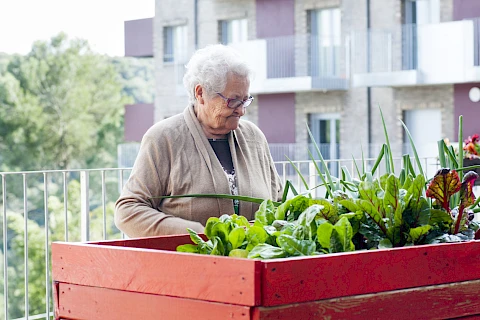
Gardening is a rewarding activity that offers countless benefits, especially for seniors. It keeps the mind active, improves physical health, and provides opportunities for social interaction. However, as we age, it becomes crucial to ensure that gardening is accessible. Incorporating a few adaptive gardening techniques can make the experience safer and more enjoyable for older adults.
Benefits of Gardening for Seniors
Gardening offers numerous physical health benefits for seniors. It provides a gentle form of exercise that helps maintain mobility and strength. Digging, planting, and watering are low-impact activities that benefit the heart and muscles. Of course, seniors should always consult a doctor before starting a new fitness routine.
Mentally, gardening is a stress-buster. It lowers anxiety and boosts mood, offering cognitive stimulation through planning and problem-solving. Scheduling regular gardening sessions can help seniors experience these mental health benefits.
Socially, gardening is a wonderful way to engage with the community. Whether it's joining a gardening club or simply sharing the garden's produce, it’s an activity that fosters a sense of connection and accomplishment.
Designing an Accessible Garden
When designing a garden for seniors, accessibility matters. Raised beds are a fantastic option because they reduce the need for bending and kneeling. These beds can be built at waist height, making it easier for seniors to reach without strain.
Container gardening is another flexible solution. Containers can be placed on tables or stands to adjust to a comfortable working height. They also allow for a variety of plants to be grown without taking up a lot of space.
Choosing the Right Tools
Adaptive gardening tools can make all the difference. Look for ergonomic tools that are designed to reduce strain. These often have comfortable grips and are easy to hold, even for seniors with arthritis or limited hand strength. Lightweight and long-handled tools are great for reducing physical effort. They enhance reach, making it easier to tend to different parts of the garden without bending or stretching too much.
Selecting Safe and Suitable Plants
Safety should be a priority when choosing plants for a senior's garden. Opt for non-toxic plants to avoid any health risks. It's also wise to go for low-maintenance options that require less watering and care. Consider the seasons when selecting plants. Some plants thrive in cooler weather, while others love the heat. Make sure to vary plant selection according to the growing conditions.
Ensuring Safety in the Garden
Keep pathways clear of obstacles and ensure the garden is well-lit. Encourage proper hydration and sun protection. Ensure seniors wear hats, use sunscreen, and drink plenty of fluids when gardening to prevent dehydration or sunburn.
Pay attention to any signs of fatigue or discomfort. Encourage seniors to take regular breaks and not overexert themselves. Check in frequently and adjust the gardening routine to match their comfort level, ensuring the activity remains safe and enjoyable.
Senior Helpers Provides Gardening Support and More
Adaptive gardening can be both therapeutic and practical for seniors. With a few changes, caregivers can create accessible and enjoyable gardening experiences, keeping them engaged in retirement. If you’re considering additional home support, particularly with daily living tasks, help with hobbies or gardening, and other facets of elderly care, Senior Helpers Bryan-CollegeStation-TX can help. We specialize in personalized senior home care solutions in Bryan, Conroe, College Station, Livingston, and Huntsville. Contact us today for more information!